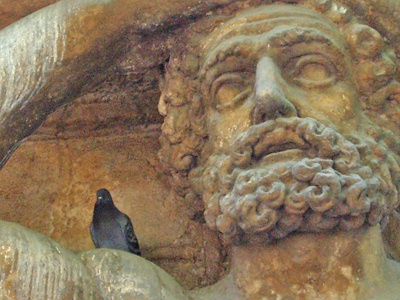All Nonfiction
- Bullying
- Books
- Academic
- Author Interviews
- Celebrity interviews
- College Articles
- College Essays
- Educator of the Year
- Heroes
- Interviews
- Memoir
- Personal Experience
- Sports
- Travel & Culture
All Opinions
- Bullying
- Current Events / Politics
- Discrimination
- Drugs / Alcohol / Smoking
- Entertainment / Celebrities
- Environment
- Love / Relationships
- Movies / Music / TV
- Pop Culture / Trends
- School / College
- Social Issues / Civics
- Spirituality / Religion
- Sports / Hobbies
All Hot Topics
- Bullying
- Community Service
- Environment
- Health
- Letters to the Editor
- Pride & Prejudice
- What Matters
- Back
Summer Guide
- Program Links
- Program Reviews
- Back
College Guide
- College Links
- College Reviews
- College Essays
- College Articles
- Back
To What Extent Were The Crusades Successful?
The Crusades (1095-1212) was an attempt by the Roman Catholic Church to regain the Holy Lands from the Muslims. Several Crusades took place during this time period. Although the initial Crusade was successful, later Crusades not only seemed to lose sight of their original purpose but also appeared to be an excuse for violence and thievery that damaged the reputation of the Catholic Church worldwide. The Crusades afterwards were only successful to the Third Crusade because the original crusades had a clear, organized, religious-based purpose, and later crusades outright failed due to ineptitude and greed.
In 1095 Pope Urban II gave a sermon to the Council of Clermont in France urging nobles and peasants alike to join him on a holy war against the Muslims. Their mission: to reclaim the sacred land of Jerusalem from the “Saracens”. He tempted people to come together by promising them salvation from God and fame when the Crusaders (the word crusade derives from the French word “crois” which means “cross”) returned. Also, Pope Urban II assured his Crusaders gain wealth by pillage. Because of these assurances, thousands of people, both rich and poor, followed the Pope.
“God wills it!” cried out the crusaders during the First Crusade (1095-1099). A previous unofficial crusade proved to be ineffective; a jumbled throng of peasants ran throughout Islamic land and looted villages then were later obliterated. The First Crusade was more organized and therefore better. They came into Asia Minor thorough Constantinople and were victorious in Syria. They reclaimed Jerusalem in 1099, and they ruthlessly murdered countless innocent Muslims and Jews (including children) on the way. Yet the Crusaders defended their acts by saying that the massacre was not sinful because the people weren’t Christians.
In 1144, the Turks were able to capture Edessa, an important English outpost north of Antioch, Tripoli, Acre, and Jerusalem. Angered by the strike, Bernard of Clairvaux assembled another group of crusaders, thereby organizing the Second Crusade. This struggle was unsuccessful; their enemies were more prepared and Bernard of Clairvaux and his crusaders were incapable of reclaiming Edessa. In 1187, Muslim leader Saladin (or in Arabic, Salah al-Din) marched into Jerusalem and took it as his own. This was the beginning of the Third Crusade, led by Richard I the Lionheart, the king of England. Phillip II of France and Frederick I of Germany also supported the English king. In these series of battles, the crusaders weren’t strong enough to take hold of Jerusalem, nor were Saladin able to push them out of his land. So Richard I the Lionheart and Saladin came to a compromise; the Peace of Ramla declared that the Muslims would be able to control Jerusalem, yet the Christians would be able to visit their sanctified city in peace. Most of the crusades afterwards lost view of their original principle; while many crusaders were riled up by religious faith and truly wanted to “save” their holy land, most people just wanted a reason to raid and loot cities. Also, they had no leader because the Peace of Ramla forbade it. People went as far as to send children into battle. This historic crusade is known as the Children’s Crusade, where as many as 20,000 European children (hardly any over the age of twelve) came together to march to Jerusalem under the command of a fourteen year old named Stephan. Most of the children died of starvation and exhaustion, while others were killed in shipwrecks. Those who made it to Jerusalem were sold into slavery. Unsurprisingly, this mission failed.
In short, the First Crusade proved to be (while incredibly vicious) a success for the Christians. The Second Crusade was a disaster. The Third Crusade ended in compromise between the Christians and the Muslims. The crusades afterwards were outright stupid, not to mention they were detrimental to the Roman Catholic Church’s reputation. While Pope Urban II had good intentions in the beginning, the Crusades turned into something much different than his initial ideas by the Children’s Crusade. They were only worth fighting up to the Third Crusade and the ones after were pointless.

Similar Articles
JOIN THE DISCUSSION
This article has 1 comment.
